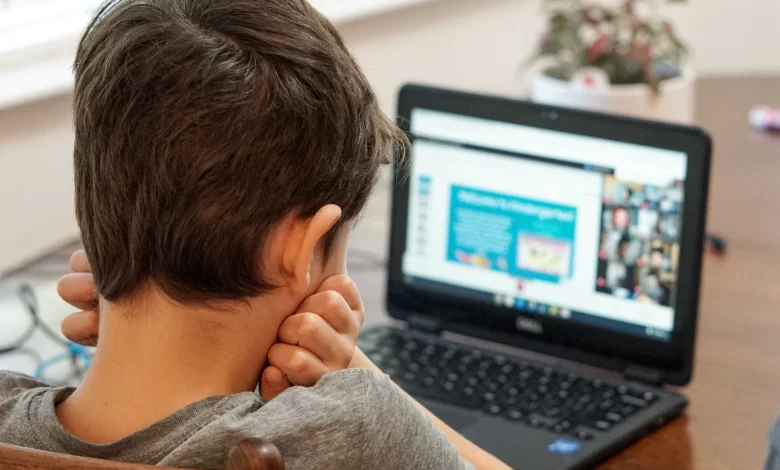Tips on How to Prepare for your First Online Class

Freshman years can be terrifying at first because it is usually the time when we begin to realize that we are no longer in our youth; we start to picture our future. Prior to the global pandemic, college meant meeting new people and discovering the preliminaries of the professional world. It is all about attending physical classes, learning through first-hand experiences, and building memories significant for social transformation. However, due to the effects of the contemporary crisis on education, distant and remote learning have been the new normal. Here are 11 pieces of advice that can help you prepare for your first online class that might just make college more exciting and fun, while in the comforts of your house and lot.
1. Peak at your curriculum.
Of course, you would not want to step onto unfamiliar terrain. Acquaint yourself first with the program, course syllabus, course materials, online tools and your academic calendar. Having an initial understanding of the course description will allow you to set expectations as to how online instructor will teach the subject — similarly, this will give you an insight as to what to prepare for before the semester officially commences.
2. Gather the materials you need for a comfortable online environment.
Gear up as you enter the battlefield. One of the downfalls of remote learning is the high-cost demands for e-learning resources such as a well-lit study area, headphones equipped with a microphone, fast processing laptop or computer and internet connection. Nonetheless, whether we like it or not, all these contribute to your academic performance and learning process so make sure that you’re all set up before your first online class session!
3. Redesign your study space to prepare it for your online classes.
Set up a study space where you will be most comfortable because this will now serve as your ‘classroom’ at an at-home learning set-up. Organizing and spicing up your study area will not only boost your motivation, efficiency, and effectiveness but would also help you save time and energy when it comes to studying.
4. Organize your virtual space.
Now that you have decluttered and arranged your physical set-up, it’s time to declutter and organize your virtual space. Consider segmenting your files carefully — creating folders for each classification. Label them accordingly for future reference. Delete those that aren’t needed yet consume storage space, as well.
5. Take a walk on your virtual campus.
Get to know your online learning platform. You wouldn’t want to be late on your first day just because you got lost and sidetracked on your school website, would you? Taking a walk in your virtual campus entails that you navigate the site where your online classroom would be held. By doing so, you explore and learn more about the functionality of the platform.
Think of it this way: your online learning platform will serve as your university college or faculty building. Determine which specific web pages or web links found on this platform you have to enter as a response to your academic demands.
6. Give yourself an online ‘university’ tour.
At the beginning of every academic year, freshmen are always welcomed by an orientation day which usually involves a university tour. Here, you will learn more about the academic and student life preserved by your institution, specifically: school policies, rules, directories, procedures, etc.
It is significant to know the composition of your institution in an in-depth manner. Determine which respective school offices and administrators can assist you when you’re in need. In this virtual tour, familiarize yourself with the roles of each office and their contact information. Likewise, study certain procedures systemized by the institution. For example, enrollment and enlistment processes.
7. List down your class schedule.
Making a list of your class schedule will help you avoid absences or missed lectures in your online courses. While it is true that virtual classes prove to be more convenient for students as they simply have to log into their accounts to attend classes, most of the time, this ease can lead to academic lethargy. In order to combat this, keep your list at your common vantage point.
8. Determine your learning strategy.
There are various learning strategies that help online students stay focused and retain information while studying. For example, some find it easier to concentrate while listening to music, while others do not. Some learn through sensory experiences, while others rely solely on their cognitive vulnerability. Determining your learning management system is important in bypassing your weaknesses and elevating your strengths despite the lack of a physical learning setup.
9. Head up your course reading materials, books, modules, and the likes of it.
Generate a bucket list of everything you need for this academic year. It is a trend in online-held environments of learning to educate yourself independently. Because of this, you will be heavily reliant on the reading materials, textbooks, modules, and etc. Make sure that you are prepared by gathering these resources beforehand to avoid further nuisance or inconvenience.
10. Download online learning applications.
Today, there is an app for almost everything you need, whether editing educational videos, note-taking, designing, calculating, or even reviewing virtual flashcards for online class. The convenience that comes along with this era of digital advancement cannot be undermined; hence, if you’re looking for ways to make your college-online classes more fun and bearable in a sense, perhaps consider browsing on your App Store or Play Store. Note that student preferences and needs vary from one another, so finding the right tool (app) that can help you in your learning requires some experimentation.
11. Build new friendships and relationships.
Distant learning may seem like individual learning, but this is far from the truth. Just like you, many students are seeking to build newly-formed friendships and relationships. Do not be afraid to engage and connect with them as they will serve as your support system. Furthermore, in hopes of mirroring face-to-face interactions at school, many online courses are designed to encourage students to social collaborate with other online students; hence, in order to keep up with this demand, it is important to find your circle of friends with whom you can work comfortably.
Remember, college you is a manifestation of a more matured, upgraded version of yourself. So what are you waiting for? Get up and start preparing for your first day at school!




